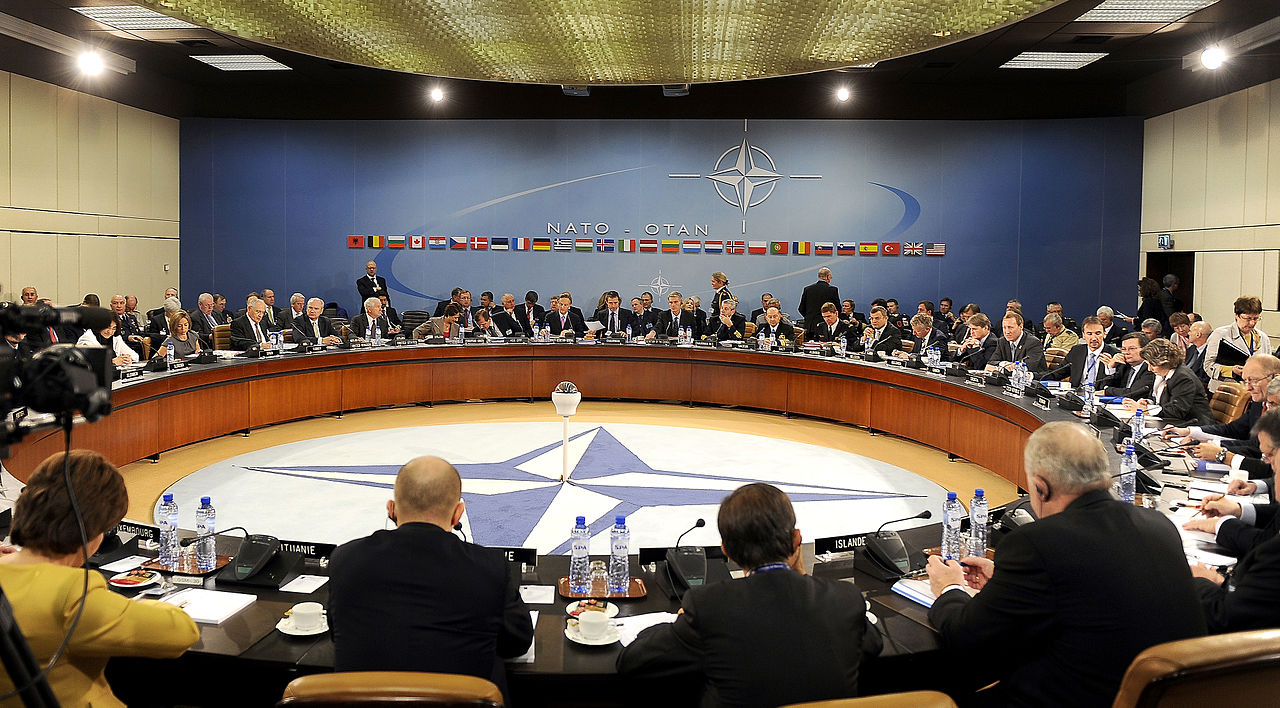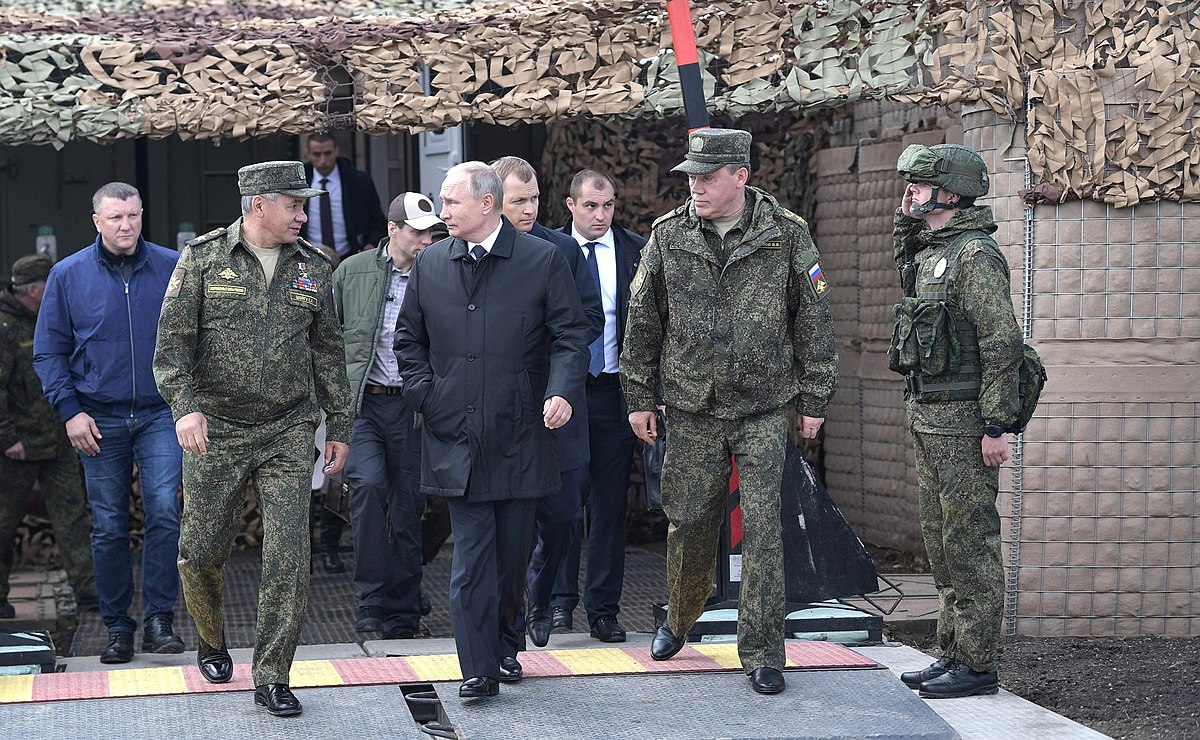Berlin’s hesitation. Where does the distance between the Germans and Ukraine come from? (Part 1)

The transformation of German policy towards Russia is both profound, if viewed in relation to its starting point, and only partial. Germany is as far away as possible from the Polish pro-Ukrainian and anti-Russian enthusiasm.
Łukasz Warzecha
Przemysław Gintrowski, in a song about Aleksander Wielopolski, snag the following: “The margrave is still walking on the rope, it is dangerous to walk so high”. To paraphrase, today one could sing: “Chancellor Scholz is still walking on the rope…”. In relations with Russia and Ukraine, Germany wants to have its cake and eat it too. Moreover, with a favorable combination of circumstances, they may even succeed in this art. So far, Berlin’s actions are a textbook illustration of the concept of hestitation.
If someone thought, on the basis of the shock of the first weeks of the invasion, that Germany had profoundly and completely reevaluated its own thinking about Russia and Ukraine, today one might be surprised. At that time, the Minister of Foreign Affairs, the leader of the Greens, Annalena Baerbock, admitted that Germany was naive. The thunder began to fall on the head of the former Chancellor Gerhard Schröder, who has only recently resigned from sitting on the supervisory board of the Rosneft corporation. Apparently, he was nominated to the Gazprom supervisory board in the meantime, although he himself claims that he did not apply for the nomination and rejected the proposal long ago.
GERMANY’S PROXIMITY TO RUSSIA
Three months after the start of the Russian invasion, the German elite openly spoke of the need to end the war quickly and to bring about diplomacy to achieve this goal. On the website of the daily Die Welt there is a conversation with a German analyst, historian, journalist, former general, Klaus Wittmann, who explicitly states that it is already time to start thinking about how to place Russia back in the international system after the end of the war. Wittmann’s words should not be surprising if one refers to his earlier statements. Although the general was a critic of the disregard for military needs, which resulted in a dramatic weakening of the Bundeswehr, he spoke about Russia in a way reminiscent of the analysis of John Mearsheimer or Henry Kissinger. In 2017, in an interview with Jędrzej Bielecki in Rzeczpospolita, he said:
“We were all naive, we hoped that Russia would really become the West’s partner. But after Vladimir Putin’s famous speech in Munich in February 2007, I warned that Germany and NATO as a whole were not doing enough to protect Poland and the Baltic states against Russia. Nevertheless, Putin’s seizure of Crimea came as a complete surprise to German intelligence. It must be admitted, however, that the West also made mistakes, in particular at the summit in Bucharest [in 2008], when Ukraine and Georgia were promised NATO membership under pressure from George W. Bush. It was a provocation for Putin: a few months later he started a war in Georgia and forced the maintenance of Russian troops in Sevastopol until 2042”.
Thus, Wittmann, like Mearsheimer, pointed to the unfulfilled promises of Ukraine joining NATO as provoking Russia to aggression.
While Schröder, who has been working for the Russians and taking money from them for years, is in fact treated in Germany as a pariah – he even lost his federal office, which he was entitled to as the former head of government – Angela Merkel, the main architect of Berlin’s rapprochement with Moscow and a relentless defender of the Nord Stream 2 project, did not lose a hair from hear head. Merkel is stubbornly silent about her role in politics towards Russia, it would therefore seem that the CDU, which is most burdened by this policy, should throw her off the cart for its own political benefit. However, this did not happen. Merkel is not even particularly pressed by political opponents. It can be assumed that too many bodies are hidden in various closets – bodies that the former chancellor can reveal at any time – in case anyone dares to attack her.
The fact is that Germany suffered a severe PR failure as a country that sponsors a policy of close relations with Moscow, and the story of German helmets, which took weeks to reach Ukraine will arouse pity for years. The question is whether this defeat will translate into a weakening of the German position in Europe and in relation to Ukraine and Germany’s position in the EU. Such hopes are shared by a large part of the Polish government camp, but it may be only wishful thinking.
CONSTANT HESITATION
It is certain that Chancellor Scholz decided not to go to extremes and did not turn Germany into a champion of the Ukrainian cause as part of his reproach for earlier faults. And even if in the ruling elite – inside the relatively strongly anti-Russian Greens and in the FDP – very intense, sometimes violent talks are taking place about the direction that should be taken take in the face of events, Scholz seems to have already decided to follow a cautious and conservative course, and these discussions have little influence on his position.
(…)
This article was published in June 2021 in “Do Rzeczy” magazine.



